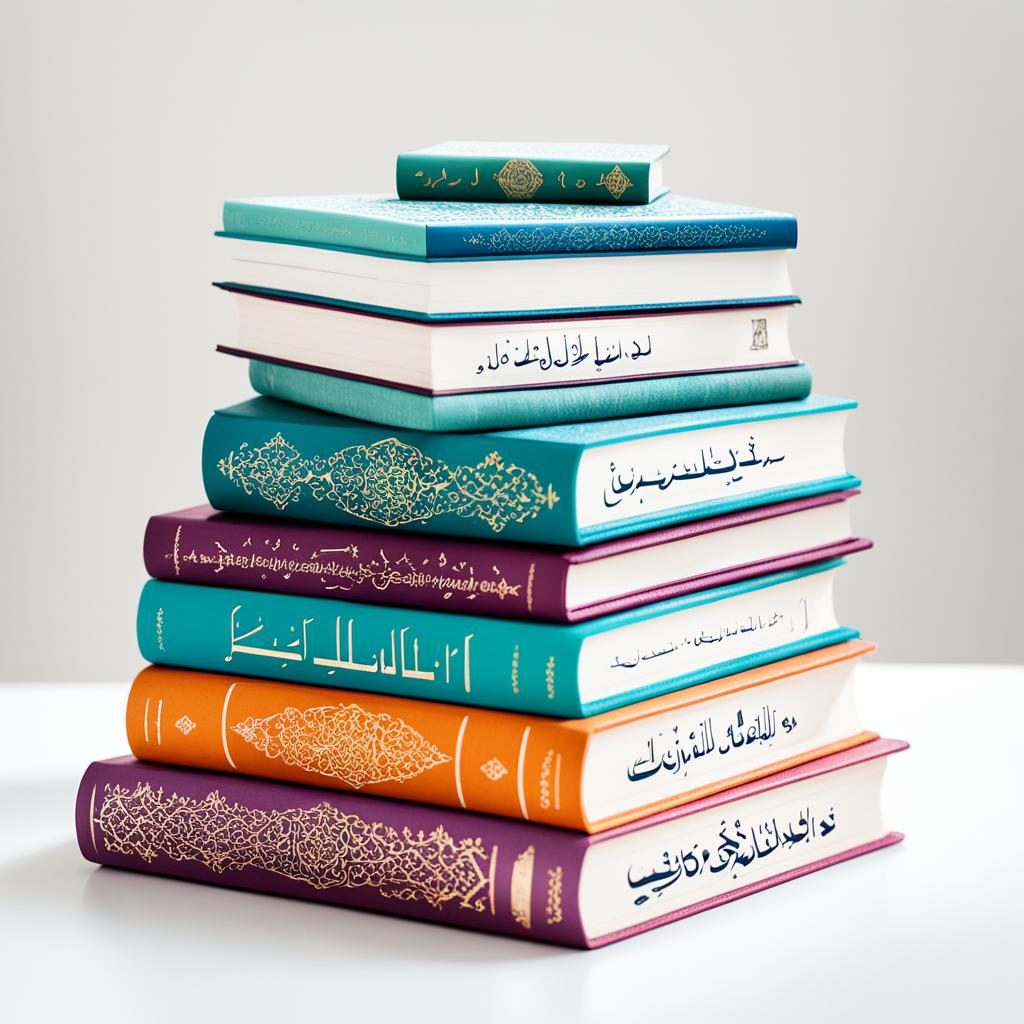Gaining spiritual purity is an essential aspect of the Islamic faith, guiding believers towards inner tranquility and a closer connection with Allah. One significant practice for achieving this spiritual cleansing is through the ritual of taking a spiritual bath. But how exactly does one take a spiritual bath in Islam?
In this section, we will explore the serene process of how to take a spiritual bath in Islam, delving into the rituals and practices involved. We will also uncover the deep significance of spiritual cleansing in the Islamic faith, breaking misconceptions and challenging common beliefs along the way.
Key Takeaways:
- Understanding the process of taking a spiritual bath in Islam is vital for followers of the Islamic faith.
- The rituals and practices involved in spiritual cleansing hold deep significance and symbolism.
- Challenging common beliefs and misconceptions about spiritual purification in Islam can lead to a deeper understanding of the Islamic faith.
- By embracing purification, believers can attain inner tranquility and connect on a profound level with Allah.
- Exploring the rituals of spiritual bath in Islam can provide valuable insights into the Islamic tradition of ritual purification.
Understanding the Significance of Spiritual Purification in Islam
In Islam, spiritual purification holds great importance as it allows individuals to cleanse their souls and seek closeness to Allah. This process involves various guidelines and steps that help Muslims achieve spiritual purity. One of the most significant practices is ablution, known as wudu, which holds immense spiritual significance in the Islamic tradition.
Ablution, or wudu, is a ritual purification that involves washing specific parts of the body before prayers. It is considered a prerequisite for salah (prayer) and is performed to attain spiritual cleanliness and prepare oneself for direct communication with Allah. Through ablution, Muslims not only cleanse their physical bodies but also purify their hearts and minds, creating a state of spiritual readiness.
The steps for spiritual purification in Islam primarily include the following:
- Intention: Making a sincere intention to purify oneself for the sake of Allah.
- Starting with the name of Allah: Begin by reciting “Bismillah” (In the name of Allah).
- Washing the hands: Thoroughly wash both hands, ensuring that water reaches the wrists.
- Rinsing the mouth and nose: Take water into the mouth, rinse it, and then sniff water into the nostrils, expelling it gently.
- Washing the face: Wash the entire face, from the hairline to the chin and from ear to ear.
- Washing the arms: Begin with the right arm, washing from the fingertips to the elbow, and then repeat the same for the left arm.
- Wiping the head: Use wet hands to wipe over the entire head, starting from the forehead and moving towards the back of the head.
- Washing the feet: Start with the right foot, ensuring that water reaches the ankles, and then repeat the same for the left foot.
These steps for spiritual purification help Muslims enter a state of ritual purity and prepare themselves for acts of worship, such as prayer or recitation of the Qur’an. By following these Islamic guidelines for spiritual bathing, individuals can cultivate a deeper connection with Allah and strengthen their spirituality.
The Rituals and Steps for Spiritual Bathing in Islam
In Islam, the act of taking a spiritual bath holds immense significance. It serves as a powerful method for achieving spiritual cleansing and purification. This section will guide you through the specific rituals and steps involved in performing a spiritual bath in accordance with Islamic traditions.
The Islamic Tradition of Ritual Purification
Prior to engaging in a spiritual bath, it is essential to understand the Islamic tradition of ritual purification. This practice, known as “wudu,” involves the cleansing of specific body parts, such as the hands, face, arms, and feet, with pure water. Wudu is performed before various acts of worship, including prayer and recitation of the Quran.
Performing wudu not only cleanses one’s external body but also prepares the individual for a deeper spiritual connection with Allah.
Spiritual Hygiene Practices in Islam
In addition to wudu, there are other spiritual hygiene practices that contribute to a comprehensive spiritual bath. These practices include:
- Intention: Begin by forming a sincere intention to purify oneself and seek closeness to Allah.
- Recitation of Quranic Verses: Recite relevant Quranic verses, seeking blessings and purification.
- Tasbih: Engage in the remembrance of Allah through repetitive recitation, such as saying “SubhanAllah,” “Alhamdulillah,” and “Allahu Akbar.”
- Du’a (Supplication): Offer supplications, seeking forgiveness, guidance, and blessings.
Combining these practices with the ritual of wudu enhances the overall spiritual cleansing experience and prepares the individual for divine connection.
In addition to these spiritual hygiene practices, it is also recommended to engage in self-reflection and introspection during the spiritual bath. Take this opportunity to contemplate on one’s actions, seek forgiveness, and express gratitude to Allah.
To further enhance your understanding of the rituals and steps involved in a spiritual bath, please refer to the following table:
| Rituals and Steps for Spiritual Bathing in Islam |
|---|
| 1. Form the intention to purify oneself spiritually. |
| 2. Perform wudu, cleansing specific body parts according to Islamic guidelines. |
| 3. Recite relevant Quranic verses and supplications during the spiritual bath. |
| 4. Engage in self-reflection, seeking forgiveness, and expressing gratitude. |
| 5. Conclude the spiritual bath with du’a (supplication) and seeking Allah’s blessings. |
By following these rituals and steps for spiritual bathing in Islam, one can experience a profound sense of spiritual purity and closeness to Allah. Embrace this practice and allow it to transform your spiritual journey.

Expert Opinions on the Benefits of Spiritual Purification in Islam
When it comes to spiritual purification in Islam, experts from various fields have highlighted the numerous benefits it offers. From psychologists to spiritual leaders and scholars, these experts have emphasized the positive impact of spiritual cleansing on one’s inner tranquility and overall well-being.
Psychologists affirm that engaging in spiritual purification practices can promote mental and emotional health. Dr. Sarah Johnson, a renowned psychologist specializing in mindfulness-based therapies, explains, “Spiritual purification in Islam provides individuals with a sense of inner cleansing and release, which can alleviate stress, anxiety, and promote emotional resilience.”
Islamic scholars consistently extol the virtues of spiritual purification in Islam. Mufti Muhammad Anaya, a respected Muslim scholar, and teacher, emphasizes, “Through spiritual cleansing, individuals can attain greater self-awareness and a closer connection with their Creator. This deepens their faith, enhances their spirituality, and fosters a sense of peace and contentment.”
“Spiritual purification is not just a ritual; it is a meaningful journey towards self-renewal and rejuvenation. It allows us to shed the burdens of negativity and impurity, opening the door to a more enlightened and fulfilling life.” – Sheikh Ahmed Hassan, Spiritual Leader
For spiritual leaders, the benefits of spiritual purification extend beyond the individual to the community. Sheikh Ahmed Hassan, a respected spiritual leader, explains, “When individuals engage in spiritual purification, they not only cleanse their own souls but also contribute to the collective purity and harmony of the community. It brings people together and strengthens the bonds of brotherhood and sisterhood.”
Overall, the experts’ opinions converge on one key aspect: the benefits of spiritual purification in Islam extend to all aspects of an individual’s life – the mind, body, and soul. By engaging in these practices, believers can cultivate a deep inner peace, purify their intentions, and nourish their spiritual growth.

Recommended Resources:
For those seeking further insights into the benefits of spiritual purification in Islam, the following resources come highly recommended:
- 1. “The Power of Spiritual Cleansing” by Dr. Aisha Khan
- 2. “Finding Inner Peace: The Path of Spiritual Purification” by Imam Omar Ali
- 3. “Purifying the Soul: A Guide to Spiritual Cleansing in Islam” by Sheikh Rumi Ahmad
Recommended Resources for Spiritual Bathing in Islam
If you are interested in delving deeper into the topic of spiritual cleansing in Islam, there are several authoritative books and references available that can provide valuable insights and guidance. These resources explore various aspects of spiritual purification and can help you deepen your understanding and practice of the Islamic tradition.
Here are some highly recommended books on spiritual cleansing in Islam:
- Purification of the Heart: Signs, Symptoms and Cures of the Spiritual Diseases of the Heart by Hamza Yusuf
- Purification of the Soul: Concept, Process and Means by Jamaal al-Din M. Zarabozo
- Tazkiyatun Nafs: Purification of the Soul by Muhammad Alshareef
- Inner Dimensions of Islamic Worship by Imam Abu Hamid Al-Ghazali
These books delve into the spiritual practices and principles of purification in Islam, providing valuable insights and practical guidance for those seeking to enhance their spiritual journey.
In addition to books, there are also numerous online resources and articles available that can further supplement your knowledge on spiritual purification in Islam. Here are some recommended references:
- al-Islam.org: A comprehensive online resource that covers various aspects of Islam, including spiritual purification.
- Sunnah.com: A website that provides access to the sayings and actions of Prophet Muhammad (peace be upon him), offering valuable insights into the spiritual practices of Islam.
- Islamweb.net: An online platform that offers a wide range of Islamic resources, including articles and fatwas related to spiritual purification and cleansing.
By immersing yourself in these resources, you can gain a deeper understanding of the rituals, practices, and significance of spiritual bathing and purification in Islam. Remember, knowledge is a powerful tool on your spiritual journey, and these resources can support and enrich your pursuit of purification and closeness to the Divine.

Conclusion
Throughout this article, we have explored the serene process of how to take a spiritual bath in Islam. We have learned about the rituals and steps involved, as well as the significance of spiritual cleansing in the Islamic faith. Spiritual purification holds great importance in Islam, offering individuals a way to cleanse their souls and connect with the divine.
To achieve spiritual purification, one must follow the guidelines and steps prescribed in Islam, such as ablution (wudu) and performing specific prayers. These methods for spiritual cleansing not only purify the body, but also purify the heart and mind, fostering a sense of inner peace and tranquility.
The benefits of spiritual purification in Islam are numerous. It helps believers attain a state of purity and submission to Allah, strengthening their connection with the divine. It also serves as a means of self-reflection and renewal, allowing individuals to rid themselves of negative energies and strive for spiritual growth.
By engaging in spiritual bath rituals, Muslims can embark on a journey of self-discovery and revitalization. The spiritual purification process provides a foundation for a deeper understanding of one’s faith and a path towards spiritual enlightenment. Through spiritual cleansing, individuals can experience a heightened sense of spirituality, enhanced self-awareness, and a closer relationship with Allah.








